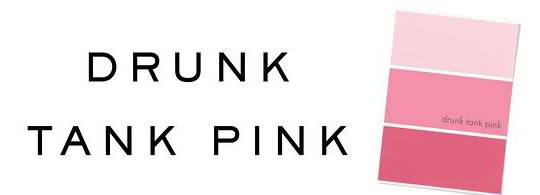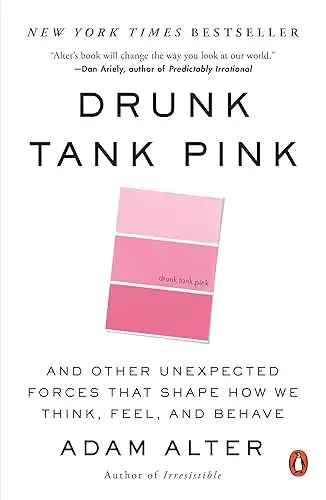Drunk Tank Pink by Adam Alter

Book Review: Drunk Tank Pink, and Other Unexpected Forces That Shape How We Think, Feel, and Behave by Adam Alter
In Drunk Tank Pink, Author Adam Alter uses his own research and that of others to show how we are all influenced by factors we aren’t aware of or don’t acknowledge as important. As such, it’s a fun combination of Freakonomics and part Predictably Irrational.
The book’s odd title comes from a shade of pink that was found to curb aggressive behavior, sap energy, and even reduce muscular strength. Holding cells were painted that color, as were athletic locker rooms (but only those used by the visiting team).
Chess Queens
I’ve written often about the effect of attractive women, and even pictures of them, but Alter introduced me to a study that meticulously examined how chess champions played matches, and in particular how males played gain at females rated as attractive. The behavior of the males did change when compared to their play against other men.
This behavior is explained by evolutionary psychology. In prehistoric days, men competed for women by demonstrating strength and prowess, much as lions and elephants still do. Today, combat is rare but men are still driven to show off to impress women.
Sun Makes You Stupid
Do you find bright sunshine energizing? In fact, it seems to introduce a mental stupor. Australian researchers conducted a memory test on unsuspecting shoppers by placing a group of items on a store counter and testing what shoppers recalled on exiting the shop. Subjects recalled three times as many items on gray, cloudy days as on sunny days!
Seeing Red
One chapter is devoted to surprising color effects. Red is a potent color in many ways, but one of the more unusual ones is that using a red pen makes you more strict. Essay reviewers found an average of 24 errors when using a red pen vs. just 19 with a blue pen. Similarly, another set of reviewers gave essays an average grade of 80 when using a blue pen, but only 76 with red ink.
And the red effect works on students,too. Alter describes a variety of experiments in which students primed with red performed more poorly on tests.
Even though the book is devoted entirely to research findings, it’s never overly scientific. Alter writes in an entertaining style totally accessible to the lay reader. Indeed, if there’s a shortcoming in the book it’s that sometimes experimental details are glossed over to the point where a skeptical reader might want a bit more information. But, for the reader who wants to dig deeper, there’s a good set of endnotes to track down the original research. If you enjoy learning about the quirky side of human behavior, Drunk Tank Pink is a must-read.
Amazon Link: Drunk Tank Pink: And Other Unexpected Forces that Shape How We Think, Feel, and Behave
Kindle Version: Drunk Tank Pink: And Other Unexpected Forces that Shape How We Think, Feel, and Behave

